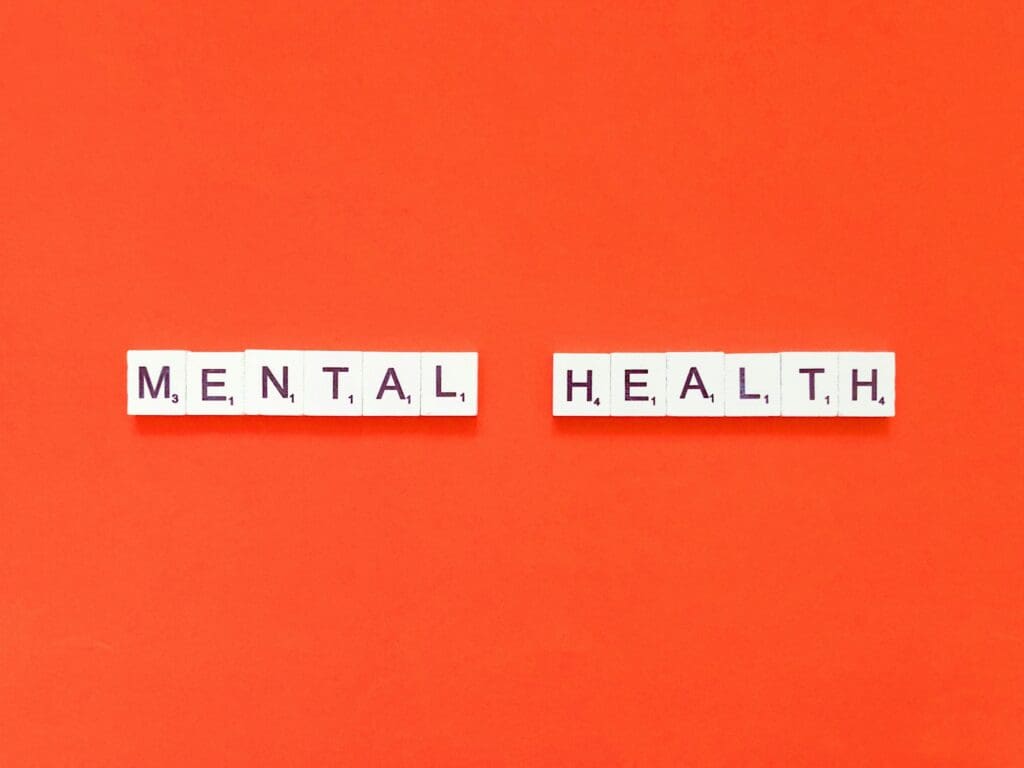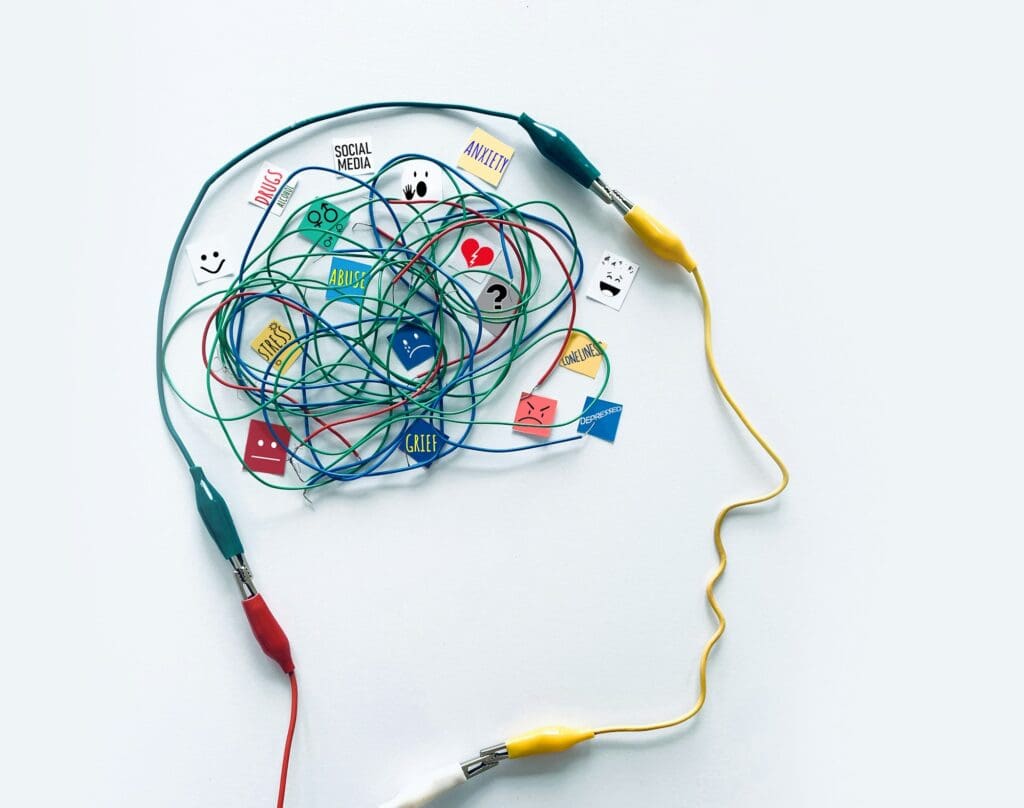


When it comes to mental health, misinformation is surprisingly rampant. Myths and misconceptions can prevent people from seeking the help they need or supporting others effectively.
It’s crucial to dispel these myths to foster a better understanding and promote mental well-being.
“Mental health is just as important as physical health, and misconceptions can only hinder progress.” – Dr. Jane Doe, Clinical Psychologist
In this article, we’ll explore some of the most common mental health myths and provide you with facts to debunk them. Knowing the truth can empower you to make informed decisions and support those around you more effectively.

When you think about mental health, it’s easy to get caught up in misunderstandings and misconceptions. These myths not only perpetuate stigma but also prevent individuals from seeking the help they need.
In this section, we’ll delve into some of the most common mental health myths and provide you with facts to debunk them effectively.
Myth 1: Mental illness is a sign of weakness. This misconception often stops people from reaching out for help.
The truth is, mental health conditions are legitimate medical issues that require appropriate treatment, much like diabetes or heart disease. Strength comes from recognizing the need for support and taking steps towards recovery.
Myth 2: Therapy is only for people with severe mental illness. Contrary to this belief, therapy can benefit anyone.
Whether you’re dealing with stress, life transitions, or wanting personal growth, a professional can provide valuable insights and strategies. Therapy is a tool for maintaining mental wellness, not just addressing severe disorders.
Myth 3: Talking about your mental health makes it worse. People often fear that discussing their struggles will amplify them. In reality, talking about mental health is an essential part of the healing process.
Opening up can provide relief, create connections, and break down the stigma surrounding mental health conversations.
Myth 4: Medication is the only solution for mental health issues. While medication can be an effective part of treatment, it’s not the sole option.
Therapy, lifestyle changes, and support groups also play crucial roles in managing mental health. A comprehensive treatment plan tailored to individual needs often yields the best results.
Myth 5: Mental health problems are permanent. Many believe that once diagnosed with a mental health condition, there’s no path to recovery.
However, numerous people have shown that recovery is achievable with the right support and treatment. It’s important to recognize that mental health is a journey, and setbacks don’t equal failure.
By debunking these myths, we can create a more supportive and understanding environment for those dealing with mental health issues.
If you or someone you know is struggling, remember that accurate information and compassion are powerful tools in the journey toward better mental health.

Mental health myths are alarmingly widespread and can have detrimental effects. Misunderstandings can contribute to stigma, hinder policy improvements, and mislead those wanting to help.
By debunking these myths, we can foster a supportive environment and make it easier for people to seek the treatment they need.
Mental health is surrounded by a whirlwind of myths and misconceptions. To stop the spread of misinformation, it’s crucial to separate fact from fiction.
By doing so, you’ll not only help dispel the stigma but also foster a more supportive and understanding environment for everyone.
Let’s dive into some common myths and their factual counterparts.
Myth 1: Mental health problems are a sign of weakness. Far from it! Mental health issues can affect anyone, regardless of their strength, resilience, or character.
Consider this: mental health is like physical health. Just as you wouldn’t blame someone for catching a cold, you shouldn’t blame someone for experiencing depression or anxiety. It’s a health issue, not a character flaw.
Myth 2: Therapy is only for people with severe mental illness. Therapy is beneficial for anyone facing emotional challenges, not just those with diagnosed mental illnesses.
Many people find therapy helpful for dealing with everyday stress, relationship issues, or personal growth. It’s like having a personal coach — someone to guide you through tough times and help you build coping skills.
Myth 3: Mental health problems are rare. This couldn’t be further from the truth. According to the National Alliance on Mental Illness (NAMI), 1 in 5 adults in the U.S. experiences mental illness in a given year.
Mental health affects all of us, directly or indirectly. Recognizing its prevalence can encourage more open discussions and reduce stigma.
Understanding the reality of mental health is the first step toward breaking down barriers. When you educate yourself and others, you contribute to a more inclusive and supportive society.
Don’t let these myths stand in the way of seeking help or offering support to someone in need.

Many people believe that mental illness is uncommon, affecting only a small fraction of the population. However, the reality is quite different.
According to the National Alliance on Mental Illness (NAMI), approximately 1 in 5 adults in the United States experience mental illness in a given year. That is around 47.6 million people.
These numbers are not just statistics—they represent our friends, family members, neighbors, and coworkers who are silently struggling. Mental health conditions do not discriminate. They affect people of all ages, genders, and backgrounds.
Furthermore, mental health challenges often start early. Research suggests that half of all mental illnesses begin by the age of 14, and three-quarters by the mid-20s.
This means that recognizing and addressing mental health issues early on is crucial.
Despite these facts, the misconception that mental illness is rare persists, contributing to the stigma and isolation many people with mental health conditions experience.
This stigma can prevent individuals from seeking help and receiving the support they need, exacerbating their struggles.
By understanding the real numbers and acknowledging the prevalence of mental health issues, you can help create a more supportive environment where individuals feel empowered to seek the help they need without fear of judgment.
One of the most common and damaging myths about mental health is the idea that you can simply “snap out of it.” This oversimplifies the complex nature of mental illnesses and undermines the very real challenges faced by those affected.
Mental health conditions are not a matter of willpower; they often require comprehensive treatment plans that may include therapy, medication, and significant lifestyle changes.
Recognizing the need for proper support is crucial. While the encouragement and understanding from family and friends can be incredibly valuable, it is not a substitute for professional help.
Mental health professionals are trained to provide the necessary tools and strategies to manage symptoms and foster recovery. Ignoring or downplaying the need for professional intervention can hinder progress and exacerbate conditions.
It’s also essential to understand that seeking help is not a sign of weakness but a step towards self-care and healing.
Just as you wouldn’t expect someone to “snap out of” a physical illness like diabetes or heart disease, mental health conditions deserve the same respect and consideration.
Proper support often involves a combination of therapies tailored to the individual’s specific needs, demonstrating the complexity and individuality of mental health treatment.
Ultimately, debunking the myth that you can “snap out of it” helps in reducing the stigma associated with seeking mental health support.
By recognizing and accepting the need for professional help, we take significant steps towards a healthier, more informed society.
If you or someone you know is struggling, remember that it’s okay to seek help. Mental health care is a critical part of overall well-being, and taking steps to get the right support can make all the difference.

It’s a common belief that once diagnosed with a mental health disorder, medication is the only path forward. While medication can be an essential element of treatment for many individuals, it’s far from the only option.
In fact, effective mental health care often encompasses a blend of different therapies, lifestyle adjustments, and social support networks.
Let’s dive into the various treatment avenues available, highlighting how they can contribute to managing and potentially overcoming mental health challenges.
Many people believe that mental health problems are lifelong sentences, but this is far from the truth. With the right treatment and support, individuals can and do recover.
Think of mental illness like other chronic conditions such as diabetes or heart disease—it requires ongoing management and care, but it doesn’t spell the end of a fulfilling life.
Therapies, medications, lifestyle changes, and support systems can make a significant difference. What’s vital is recognizing that recovery is not about returning to a pre-illness state but finding ways to manage symptoms and lead a productive life.
Just as someone with diabetes might need to monitor their blood sugar and make dietary adjustments, individuals struggling with mental health might need to incorporate strategies like therapy, medication, regular exercise, or mindfulness practices into their routines.
The National Institute of Mental Health (NIMH) notes that many people with mental illnesses recover completely over time, finding new strengths and adapting to life in ways they hadn’t thought possible before.
Another important aspect to consider is the value of resilience. Mental health challenges can foster resilience, helping individuals develop coping skills and emotional strength.
This doesn’t mean the journey is easy or the challenges any less real, but it spotlights the potential for personal growth and renewal.
Support from families, friends, and communities is also crucial. A nurturing environment can significantly aid in recovery, helping individuals to feel understood and less isolated.
It’s a reminder that mental health affects us all, and collective efforts can lead to positive changes and better outcomes.
Finally, it’s important to understand that recovery from mental illness doesn’t mean the absence of symptoms. It often means being able to live a fulfilling and productive life despite them.
The narrative is shifting from a focus on limitations to recognizing the potential for improvement and well-being.

Many people mistakenly believe that mental health issues are problems that only affect adults. In reality, mental illnesses can and do occur in children and teens, often with significant impacts.
Studies show that half of all mental illnesses develop by the mid-teens, and three-quarters appear by the mid-20s. Early intervention is crucial in these cases, as it can reduce the severity of illness and minimize risks of secondary problems.
When it comes to children and teenagers, recognizing the symptoms can be particularly challenging. Behavioral changes, mood swings, and academic struggles are often dismissed as “just a phase” or typical adolescent behavior.
However, these signs should not be ignored. Awareness and understanding are essential for parents, teachers, and caregivers to provide the needed support.
It’s important to remember that everyone has mental health, and even those with milder struggles can benefit from mental health support.
By educating ourselves and addressing these issues early, we can help young people develop coping mechanisms and resilience that will benefit them throughout their lives.
If you suspect a young person is struggling, don’t hesitate to seek professional help—early action can make a significant difference.
Navigating the world of mental health can be tricky, especially with widespread misinformation. Here are a few steps you can take to discern fact from fiction:
This is a myth. Mental health issues do not discriminate based on gender. While some conditions may be more commonly diagnosed in one gender—such as depression being more frequently reported among women and attention-deficit/hyperactivity disorder (ADHD) more frequently diagnosed in men—mental health disorders can affect anyone, regardless of their gender.
No, this is another common misconception. Mental health issues can affect individuals of all ages, including children and teenagers. In fact, early identification and treatment are critical for effective management and improved outcomes.
Conditions like anxiety, depression, and behavioral disorders are prevalent among younger populations as well.
Not at all. This is a harmful myth that contributes significantly to the stigma surrounding mental health. Research has shown that people with mental health issues are more likely to be victims of crime rather than perpetrators.
The majority of individuals struggling with mental health conditions are not violent and pose no risk to others.
No, mental health issues are not a sign of weakness. Mental illnesses are health conditions, much like diabetes or heart disease, and can affect anyone.
They result from a complex mix of genetic, biological, environmental, and psychological factors. Seeking help and managing a mental health condition requires strength and resilience.
Addressing mental health myths is crucial for fostering a more understanding and supportive society. When you challenge these misconceptions, you contribute to creating a culture of acceptance and compassion.
This allows individuals to seek help without fear of judgment, bridging the gap between awareness and effective treatment.
Remember, mental health is as vital as physical health. The mind-body connection affects every aspect of overall well-being.
Recognizing the need for a safe and welcoming environment, we can empower those struggling with mental health issues to find the support they need.
Seeking help for a problem shows signs of both bravery and resourcefulness, demonstrating an individual’s strength and resilience.
Promoting social-emotional well-being not only benefits individuals, but also leads to higher productivity, better educational outcomes, lower crime rates, stronger economies, improved quality of life, increased lifespan, and enhanced family life.
By collectively embracing a more inclusive approach to mental health, we can ensure a brighter future for everyone.
Together, let’s continue to debunk mental health myths and nurture an environment where everyone can thrive. Your effort in understanding and spreading accurate information can make a profound difference.









